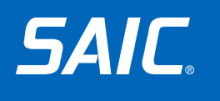SAIC Continues Legacy of Mentorship, Scholarship Support for Tomorrow's Space Leaders
Partnering with the Astronaut Scholarship Foundation to invest in the future of STEM and space exploration

By David Ray
As a youngster, I looked up at the sky and wished I could take a trip to the moon. I had so many questions surrounding the mysteries of space, which many people couldn't answer. Fast forward to now, as the senior vice president of SAIC's space business unit, I get to lead some of the sharpest space professionals, as they seek to understand the extraterrestrial landscape. My curiosity led to a career in space exploration, and now I am beyond proud to be part of an organization that believes in encouraging careers in space for students.
Encouraging future leaders in space exploration
The exploration and use of space rely on creating highways, byways and infrastructure to operate safely and effectively. Efforts like managing space objects and traffic encourage our nation to think big and find ways to increase the access and utility of this frontier. This is the time to encourage and embolden future leaders.
SAIC is thrilled to continue its ongoing partnership with the Astronaut Scholarship Foundation (ASF). ASF's mission is to support students pursuing careers in STEM-related fields that are essential to our understanding of the Earth and our universe. I believe that the partnership between SAIC and ASF helps the U.S. maintain its position as a leader in technology and innovation.
This week, we partnered with ASF to host an interactive panel discussion to encourage career development in STEM. Joined by five of my industry colleagues, we shared our journeys and experiences in the business of space. Our intention was to motivate students to chase after careers that may seem out of reach.
Investing in our future
Alongside ASF, we continue to invest in the education of today's best and brightest in STEM — all while honoring the legacy of the nation's pioneering astronauts.
In 2022, ASF and its partners provided 68 scholarships to rising college juniors and seniors across the nation. As a partner organization, SAIC awarded eight of those scholarships to students attending Georgia Tech, Virginia Tech, Univ. of Virginia, Morgan State, Univ. of Southern California, Univ. of Central Florida and Johns Hopkins Univ.
I look forward to seeing what the future holds for these promising young scientists, mathematicians, technologists, engineers and astronauts. I expect nothing short of stellar impacts as a result.
David Ray
SENIOR VICE PRESIDENT OF OPERATIONS
David Ray is senior vice president of operations and lead for the Space Business Unit within the National Security & Space Sector for SAIC. In this role, he is responsible for leading the $1.3 billion Space Business Unit with customers spanning the intelligence, defense, and federal/civil agencies.
Ray joined SAIC in 2021 with a wealth of experience in both managing and growing large technology businesses that serve government customers around the world.
Prior to his current position, Ray served as president of the Government and Defense Business Unit at FLIR Systems, Inc. where was responsible for leading all aspects of the $900 million business unit, including strategy, research and development, operations, business development, and marketing.
Ray has held several leadership roles in general management and business development at Raytheon Company from 2002 to 2017. His most recent role with the company was as vice president, Global Business Development and Strategy for the company's $6 billion Intelligence, Information, and Services Segment, serving intelligence, Department of Defense, federal/civilian agencies, and international customer markets.
He also previously served in many leadership positions of increasing authority for Raytheon Missile Systems (RMS) and Space & Airborne Systems (SAS) businesses during his 16- year tenure with Raytheon. Prior to this, he began his career as a senior management consultant at Booz Allen Hamilton.
Ray received a Bachelor of Science degree in business management from the U.S. Air Force Academy and served five years in the Air Force at Andrews Air Force Base and the Pentagon where he led teams responsible for communications-related projects designed to support senior members of the government and military. He also earned a Master of Science degree in systems management and strategy from Central Michigan University.

